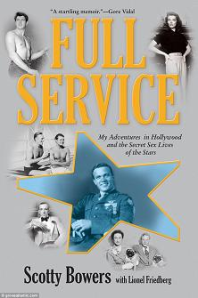An Unexpected Gift
Thursday, 16 December
Fort George, Guernsey
My dear William,
I hope this letter finds you well. I haven’t much in the way of news — life continues on here as it usually does, with the men’s lives occupied with drill by day and drinking by night. Not ideal by any means, but only to be expected, as so many have joined for their daily half-pint of rum. One might also add dicing, if they think they can get by unobserved. The officers’ lives are little different, save that cards are more favored than dice. I find myself thinking often of the weeks we spent together in September, after I took my oath to the new Parliament.
Unsurprisingly, it is unlikely that I will be granted leave again so soon, though I had hoped to spend Christmas at least with my family. Colonel Smith has not yet given me an answer, but I fear it will be “no,” despite the fact that I have only asked for a week. You are fortunate that this peace gives you the chance to keep Christmas with your mother, and your sisters and their children, whatever other difficulties it may bring.
I am fortunate also, in that the present calm affords me the leisure to write to you, and to know that my letters will reach you in good time, as yours reach me. If the peace breaks, as I fear it must before long, your ship (for I am certain Marcus shall have one, and take you with him) or my regiment may be sent beyond the reach of regular letters. Even if that should happen, I will remain
your affectionate friend,
Anthony
Lieutenant William Thorne re-folded the letter from his lover and slipped it inside his writing-desk. He took out a half-sheet of paper, trimmed his quill, and had got as far as “Dear Anthony” when there was a knock at the door. He got up to answer it.
He wasn’t sure who he had thought to find, as the carrier had already been that day with his letter, and his sisters, if they had reason to come by, usually came straight into the kitchen. Still, the tall, blond figure in its bright red coat with the insignia of a major was as unexpected as he was welcome. Thorne seized his hand. “Rockingham!”

“Is that how you greet me, William?” his lover said, embracing him. Though they were alone, he still took care to make it a brief one, such as might pass between friends. Thorne, mindful of his mother in the next room, was grateful for that, even as he longed to kiss him.
“Anthony.” His voice was low and warm. “But I thought you said you wouldn’t get leave.”
“By the time Colonel Smith decided I might have it after all, a letter would have arrived after I would,” Rockingham said. “I hope I’m not imposing.”
“Of course you’re not,” Thorne said. Anything else he might have added was interrupted by a voice from the next room.
“William? Who’s at the door? It’s not bad news?”
Thorne grinned, and opened the door to the kitchen, gesturing at Rockingham to follow him. “Look who’s come to see us, Ma.”
Mrs. Thorne dropped the paring knife she was using to scrape parsnips. She bobbed a hasty curtsy. “My lord!”
Rockingham bowed politely. “Your servant, ma’am. I apologize for giving you no notice of my arrival, but it wasn’t possible.”
“Never worry about that, my lord,” Mrs. Thorne said. “I only hope you’ll consent to stay to dinner this time, as you couldn’t before.” Despite her words, the look she gave Thorne was indignant, to say the least.
“I would be honoured,” Rockingham said. “As long as you’re certain it will be no trouble.”
“None at all,” she said staunchly. “It only wants half an hour, at that. But you’ve had a cold journey, to be sure, and a rough one, most likely, with the roads frozen as they are. Would you like a cup of tea while you’re waiting, my lord?”
“That would be most kind of you.”
“Just you wait in the front room, my lord, and I’ll have William bring it in to you,” Mrs. Thorne said. “And mind you don’t spill it on yourself this time! It’s no weather to be standing about in your drawers, even by the fire.”
Rockingham laughed. “Do you know, these are the selfsame breeches? I’m indebted to you for your skill in getting the stain out. I promise I’ll be careful.”
“I’m glad to hear it, your lordship.” Mrs. Thorne nodded towards the door. After he’d gone into the other room, she spoke urgently to Thorne, keeping her voice low. “William, fetch me the jar of mincemeat from the larder, and the three best apples you can find. No notice, and only pea soup and cold pie! I’d hoped to do better for your viscount, if he ever sat down with us.” She pulled the small tea caddy down from its spot on the mantel shelf.
“I’m sure it will be fine, Ma,” Thorne said. When he came back with the apples, she had already put the brown teapot and two mugs on a wooden tray. She handed it to him and shooed him into the front room.
Rockingham had already drawn one of the rush-seated chairs close to the fire. He stood up as Thorne came in. “Let me take that. You’ll want to fold up your writing-desk.”
“No, don’t bother,” Thorne said, setting the tray down on the blanket chest at the foot of the bed. “It’ll do just as well here.” He filled both mugs. As he put the teapot back down, he felt a hand between his shoulder blades. Straightening, he turned, stepping gladly into Rockingham’s tight embrace.
“I’ve missed you, William,” Rockingham said, after they’d broken their first long kiss.
“As I’ve missed you,” Thorne said. He reached up to brush away an errant curl that had escaped from Rockingham’s queue. “You’ve little enough to do on Guernsey, you say, but I’ve even less; I’ve only to go to Portsmouth each month to collect my half-pay, and ask after a berth that of course the Admiralty hasn’t got for me. That, and splitting wood for the fire. My mother doesn’t even care to trust me with the marketing.”

Rockingham laughed, and kissed him again. “When you’ve seen a ship provisioned for a six-month voyage or more?”
“Even so. She says that she’s still fit to walk the five miles to Chichester on her own, and that counting up bolts of canvas and barrels of salt beef doesn’t make me any judge of a decent knitting wool or a good cheese.”
“No more than my mother would trust me to choose her gowns, I expect,” Rockingham said. “Though when my regiment was in Ireland, years ago, I sent her an embroidered linen kerchief, and she thought well enough of that.”
“Our mothers have that in common, I think. They’re both apt to treat us as the boys we were when we first left home.” Thorne dropped his hands, and squeezed both of Rockingham’s. “Let’s have our tea before it gets cold.”
They sat down in front of the fire, wrapping their hands around the blue-glazed mugs. Rockingham looked around at the greenery in the room. “I see you’ve been preparing for Christmas already.”
“Aye, my gran always insisted that we have a sprig of holly over every window and door, to keep the evil spirits from coming inside,” Thorne said. “My mother said there was evil enough in the world without worrying ourselves about spirits, but she likes to have the holly up, just the same.”
“My mother would fuss about the berries getting everywhere, but Grandmama said it wasn’t a proper Christmas without it,” Rockingham said. “And Mama didn’t dare argue with her.”
Thorne chuckled. “No more would I! She’s one to be reckoned with, is your grandmother.”
“She always has been,” Rockingham said. “But she thought well of you, when you stayed with us. Said she could wish I had more friends with your plain good sense.”
“I can’t think what I might have done to deserve such praise.”
Rockingham grinned. “I’d think it was by taking care to agree with her. That’s what she calls good sense.”
“I call it not caring to have my head bitten off,” Thorne said. “But I’m glad of her good opinion.”
“So am I,” Rockingham said. He laid his hand on Thorne’s arm. Thorne looked back at him, seeing the wistful look in his lover’s eyes. He knew the reason: Lady Rockingham would never say the same if she knew how it stood between them, but there was no need to speak of that, any more than they needed to speak of how she wished Rockingham to marry. It was enough for now to be accepted as his friend.
Rockingham broke the silence first. “Will all your sisters and their families come here for Christmas dinner?”
“Not this year,” Thorne said. “My uncle never had any boys, you see, so by the time he’d chosen his best apprentice to carry on after him, his older girls had wed already, and the younger ones were still too young, except for Mercy, who wouldn’t have him. So it was my sister Annie who made a match of it, in the end, and they’ve the smithy now, and the good brick house that goes with it. They’ve far more room for all of us than we do here, so that’s where we’ll have our dinner. It’s as well my mother hasn’t much for me to do; I’ve needed the time to work on the gifts for all my nieces and nephews and young cousins. And to make more clothes-pegs for my mother, to replace the ones I’ve taken.”
“Clothes-pegs?” Rockingham said.
“Peg-dolls,” Thorne explained.
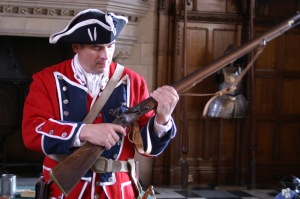
“I’d no notion,” Rockingham said. “Would you show me? I’d like to see them.”
“Be glad to,” Thorne said. “I’ll be right back.” Rockingham watched as he went up the stairs that led to the cottage’s two upper rooms, and came back down carrying a wooden box. He handed it to Rockingham, who opened the lid.
“They’re marvelous!” Rockingham said, taking out a miniature lady dressed in white muslin with bits of yellow yarn for hair, and a figure of a sailor in a striped top with a tiny black kerchief around what passed for his neck. “I didn’t know you had the toymaker’s art.”
“Soldiers and sailors for the boys, and ladies for the girls,” Thorne said. “I played with such things myself, when I was a boy. You do your own mending, at sea, so I can handle a needle, and it only takes a scrap or two to dress them. That’s my mother’s striped apron, that she burnt the hem beyond patching, standing in for the little seaman’s Guernsey frock.”
“I’m impressed,” Rockingham said. “I shouldn’t wonder if your young relations won’t like them better than whatever I find for my sister’s children. Sarah is seven now, and Bertie’s four, and I’ll stop in London to see what the toy shops can offer, but a stick horse and a toy theatre of printed paper seem unoriginal compared to these.”
“Unoriginal to them, maybe, but mine would think them a treat beyond measure,” Thorne said. “Perhaps we ought to trade?”
Rockingham looked at his lover. Thorne’s voice had been serious, and there was no smile on his lips, but the crinkling at the edges of his pale blue eyes gave him away. He laughed at that, and Thorne joined him. “I’m tempted to say yes, but I suspect you’d have a hard time explaining it,” he said. “Just as I’d be hard pressed to explain these.” He picked up another doll, this one dressed in scarlet. “The army as well as the navy. Nicely done.”
“Kate’s old cloak,” Thorne said. “Though it was Jane’s, and Annie’s, and Mary’s before that. By the time it got to Kate, and she tore it on a nail, it served well enough mended for her, but it wasn’t worth passing down to another girl. So I’d plenty of red wool to use.”
Rockingham nodded. “So I see.”
Just then, Mrs. Thorne opened the door between the rooms. “Dinner’s on the table, my lord, if it please you,” she said. “Won’t you come sit down?”
Rockingham stood up from his chair. “Delighted to, Mrs. Thorne.” Thorne followed him, bringing the tea tray and mugs without being told.
“I’m afraid it’s only plain fare, my lord,” Mrs. Thorne said, ladling pea soup into pewter soup plates. “I’d have liked to give you better, if only I’d had notice.”
“I must apologize once more for imposing myself upon you,” Rockingham said. “I had such short notice myself, and as I’m never certain when I may have leave next, I felt I could not pass up a chance to see such a good friend on the way to my family.”
“Nor should you have, my lord, if that’s what you wished,” Mrs. Thorne said. “You’re always welcome here, just as any friend of William’s would be. But we’ve not even any butter for our bread today.”
“I would never have missed it, with your quince preserves, ma’am,” Rockingham said. “If you knew of the times I’ve spent with my men, cut off from the supply train and down to short rations indeed, you would know how I might have dreamed of food such as this. Though perhaps not precisely of these pickles,” he added. “The beetroot, of course, but I’ve never had this other. What is it, if I may ask?”
“What, the samphire, my lord? It grows in the salt marshes here, and I gather it in the summer. Just a bit of green to see us through the winter.”
“It’s delicious,” he assured her. “I could wish it grew near Richmond.”

“I could spare you a jar, to take to your lady mother, if you like,” Mrs. Thorne said. “Since you were so kind as to have William to stay this September, seems it’s the least I could do.”
“I would be honoured, Mrs. Thorne,” Rockingham said. “I’m certain she would be most grateful.” Inwardly, he admired her boldness: she might only be mistress of her own home, she was saying, but she had something to offer that the lady of a fine manor lacked. And he admired the generosity as well, for he knew that jar of pickled samphire would be missed in a way the jars of strawberry and apricot preserves his mother distributed to their tenants never were.
The conversation continued, Rockingham asking politely after the rest of Thorne’s family, and answering inquiries about his own. Thorne didn’t pay it his full attention; he was just glad to listen to the sound of Rockingham’s voice, smooth and polished as always, but with the undertones of good humour that he kept for his friends. When they had finished the ham-and-chicken pie and the sliced parsnips, Mrs. Thorne cleared the dishes away, and bent to the hearth, brushing coals from the top of an iron Dutch oven, and lifting the lid to a rich smell of spices. She poked at the contents with a fork, and then turned to the dresser, fetching three small saucers. With an air of satisfaction, she set a baked apple stuffed with mincemeat at each of their places.
“There,” she said. “I was afraid they might not bake through in time, but they’re just ready.” She gave Thorne a look as if she’d scored a victory over him.
“They’re magnificent, ma’am,” Rockingham said, after taking his first bite. “I stand in awe of your talents. And your hospitality.”
“As I said before, you’re a welcome guest, my lord,” Mrs. Thorne said. “If this had been my baking day, I’d have given you mince pies.”
“I’m sure they would have been as excellent as these,” Lord Rockingham said. “William is a fortunate man.”
“You’re very kind to say so.”
The talk turned to more serious matters. Rockingham tried to sound reassuring about the chances of war returning, but Mrs. Thorne was too perceptive to be comforted by platitudes. To his relief, Thorne brought the subject back to Christmas, and Rockingham’s good fortune in having leave to go home. By the time they stood up from the table, the light through the windows was growing dim.
“You’ve a long journey yet ahead of you to your home, my lord,” Mrs. Thorne said. “And it’s late to be setting out on your way again. Will you stay the night?”
“It’s kind of you to offer, Mrs. Thorne, but it won’t be necessary. I’ve taken a room at the Pound, and my horse is in their stables now; I’ll set out from there early tomorrow. I thank you very much for the dinner. It’s the best I’ve eaten in some time.”
“I shouldn’t wonder, if you’ve been at the mercy of the cooks in His Majesty’s army,” Mrs. Thorne said. “It was an honour to have you at my table, my lord, and I hope we may see you again.”
“Nothing would give me more pleasure, ma’am.” Rockingham stood up. “Would you care to walk back to the inn with me, William? I thought I might buy you a drink or two.”
“Be happy to,” Thorne said. “Don’t wait up for me, Ma.”
Mrs. Thorne sniffed. “Wasn’t planning on it,” she said. “Begging your pardon, my lord, but I’ve known long enough that ‘a drink or two’ might as well be a dozen, when a man hasn’t seen his friend in a while.” She turned back to Thorne. “Just remember to bring the latch-lifter with you, as I’ve no mind to get out of my bed in the small hours to let you back in. And take a lantern. I’d not have you trip and break your skull coming back home in the dark.”
Thorne glanced over at Rockingham, catching the quirk of his lips and the amused glint in his warm brown eyes. He raised his eyebrows in return, as if to say, <i>What can you do?</i> “I will, Mother,” he said meekly.
“That’s that, then,” she said. “Safe travels, my lord.” She curtsied, almost as an afterthought.
Rockingham bowed. “Thank you.”
The Pound was only a mile away, so their walk was brief. “Have you seen Marcus and Alexander in London, since we were there in September?” Rockingham asked.
“No, but we write,” Thorne said, grateful that Rockingham wasn’t speaking of war. “That puppy of theirs is an enormous creature now, Marcus says — comes up to Alexander’s waist!”
Rockingham laughed. “I hope he’s learned not to jump up on visitors, then. He’d knock them down!”
“He would,” Thorne said. “But Alexander says he’s grown quite calm.”
At the inn’s door, Rockingham touched Thorne’s wrist. “Is there any reason you need to be back before morning?”
Thorne looked up at Rockingham. “I can’t think of one.” He felt his smile growing to match the one that appeared on his lover’s face.
That night, as they lay in each other’s arms, they needed no words to agree that these hours were their Christmas gift to each other. Each kiss was an unspoken promise: No matter what separates us, war or rank or wealth, we will find our way back to each other. This love will remain.
~~~~~~~~~~
Julian Griffith’s first book was a travelogue of St. Croix, lavishly illustrated in crayon. She’s been writing ever since. Meanwhile, she’s worked as a professional gift wrapper, a receptionist, a baker and caterer, a data entry clerk, and has even run a jackhammer on a construction site. She’s been a devoted fan of Doctor Who since she was a teenager, and hopes to finish her Fourth Doctor scarf sometime before the end of the decade. She has a strong interest in historical cooking, and a good thing, too, because there are times when her characters won’t let her write the next bit until she makes what they’re supposed to be eating.
Julian says, “I never expected to find myself writing romance, because I’ve been a fantasy and science fiction reader since I discovered “The Hobbit” at age seven. But I’ve always liked stories that focus on the relationships between characters more than they focus on the magic or technology they use, and the past is another world just as surely as any distant planet. And one you can research, at that.”
“I choose to write about GLBT characters in historical settings because, living today as a bisexual polyamorous woman, I can’t help but think about how my life would have been different in another era. How do my characters live their lives in a culture that doesn’t even acknowledge them, much less accept them? How do they even think of themselves, before the terms ‘gay’and ‘lesbian’existed the way they do now? And, most importantly, how do they find happiness?”
Julian hopes that her answers to these questions are believable as well as satisfying, and that you’ll enjoy reading her story. You can find her Livejournal here: julian-griffith.livejournal.com

Advent Calendar Giveaway!
Julian will be giving away two hand-knitted coffee cup cozies, meant to protect your hands from a very hot paper cup of takeaway coffee, one blue with white edging and one red with white edging, to resemble the redcoat and naval uniforms. (see photo below). Comment to be in for a chance of winning!

The BONUS BUMPER PRIZE QUESTION (don’t answer this – just save them up for Christmas Eve.)
23. What animal is Snowball in George Orwell’s book Animal Farm?

 My guest today is a best-selling author best known for scorching erotica and erotic romance, writing both M/F as Lauren Gallagher and M/M as L A Witt. Her series of novels – Rules of Engagement, Cover Me, The Distance Between Us, Changing Plans and, with Aleksandr Voinov, The Market Garden – all have an avid following. In addition she has written many standalone works to delight her readers ranging from speculative fiction to steampunk and back via historical and contemporary romance. Her latest release, co written with Aleksander Voinov, is Unhinge the Universe, an exciting historical drama set in 1944.
My guest today is a best-selling author best known for scorching erotica and erotic romance, writing both M/F as Lauren Gallagher and M/M as L A Witt. Her series of novels – Rules of Engagement, Cover Me, The Distance Between Us, Changing Plans and, with Aleksandr Voinov, The Market Garden – all have an avid following. In addition she has written many standalone works to delight her readers ranging from speculative fiction to steampunk and back via historical and contemporary romance. Her latest release, co written with Aleksander Voinov, is Unhinge the Universe, an exciting historical drama set in 1944.






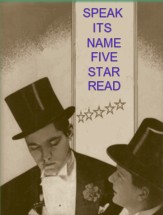




 Like all such occasions, it was almost fun at first; they crowded together in the vault, and it soon became warm enough to be comfortable, and for quite a while there was nothing but silence overhead. Someone had brought over a set of dominoes and the top of a long-deceased Lyon’s slab tomb was turned into a table where the game was played with great enthusiasm; Gwen and the ward sister – her name was Hilda, it transpired – were deep in conversation; Blanche leaned against Kitty and fell asleep, and Kitty in turn leaned against Jack. Harry, under some obscure compulsion not to rest even for a moment, circulated slowly like the host at a particularly unsuccessful party; he and the vicar, working together as if they had rehearsed it, stepped gently over stretched-out legs, found Alka-Seltzer and headache tablets and extra blankets, distributed magazines and sandwiches and light conversation wherever appropriate. By the end of the first hour, however, when optimism had turned to resignation and novelty had already begun to pall, there began to be a minor rumble of discontent amongst the ranks. People had already started to talk about making a dash for it back to their own homes – to pets shut in, to children being looked after by neighbours – when the sounds of approaching violence became audible in the distance. Parry ARP, out in the graveyard with his fellow wardens, twitched the curtain aside to say “Here they come”, and husbands pulled their wives closer to them and friends pressed tightly against one another’s shoulders in order to be in contact with someone, anyone, in a time of fear. The church may well have stood for a thousand years before tonight, but it would be no proof against a direct hit; if that happened, there would be a thousand years of solid masonry and carved oak down around the ears of the shelterers in an instant.
Like all such occasions, it was almost fun at first; they crowded together in the vault, and it soon became warm enough to be comfortable, and for quite a while there was nothing but silence overhead. Someone had brought over a set of dominoes and the top of a long-deceased Lyon’s slab tomb was turned into a table where the game was played with great enthusiasm; Gwen and the ward sister – her name was Hilda, it transpired – were deep in conversation; Blanche leaned against Kitty and fell asleep, and Kitty in turn leaned against Jack. Harry, under some obscure compulsion not to rest even for a moment, circulated slowly like the host at a particularly unsuccessful party; he and the vicar, working together as if they had rehearsed it, stepped gently over stretched-out legs, found Alka-Seltzer and headache tablets and extra blankets, distributed magazines and sandwiches and light conversation wherever appropriate. By the end of the first hour, however, when optimism had turned to resignation and novelty had already begun to pall, there began to be a minor rumble of discontent amongst the ranks. People had already started to talk about making a dash for it back to their own homes – to pets shut in, to children being looked after by neighbours – when the sounds of approaching violence became audible in the distance. Parry ARP, out in the graveyard with his fellow wardens, twitched the curtain aside to say “Here they come”, and husbands pulled their wives closer to them and friends pressed tightly against one another’s shoulders in order to be in contact with someone, anyone, in a time of fear. The church may well have stood for a thousand years before tonight, but it would be no proof against a direct hit; if that happened, there would be a thousand years of solid masonry and carved oak down around the ears of the shelterers in an instant.


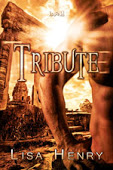
 Lisa: I love villains, but no moustache-twirlers for me. I like my villains to be more complicated than that, and I think it’s important to remember that “evil for the sake of evil” is incredibly rare. Most villains don’t think they’re evil, which makes them much more terrifying. The closest thing I’ve ever written to a moustache-twirling villain would be Vornis from The Island, but even he’s not evil just for the sake of it. He makes examples of the men who cross him because it is necessary in his line of work. He happens to enjoy it as well, but it’s not done without reason.
Lisa: I love villains, but no moustache-twirlers for me. I like my villains to be more complicated than that, and I think it’s important to remember that “evil for the sake of evil” is incredibly rare. Most villains don’t think they’re evil, which makes them much more terrifying. The closest thing I’ve ever written to a moustache-twirling villain would be Vornis from The Island, but even he’s not evil just for the sake of it. He makes examples of the men who cross him because it is necessary in his line of work. He happens to enjoy it as well, but it’s not done without reason. One of the most fascinating things I learned about Ancient Rome that never made it into He Is Worthy — and was never going to, I just got completely sidetracked — was about cosmetic surgery. Yes, in Ancient Rome you could get breast reductions, nose jobs, and eyelifts. The Romans knew about blood and circulation, and even how to reshape cartilage, but given that they didn’t know about germs, or have much in the way of anesthetic, I imagine you would have to be very brave or very desperate to go under the knife.
One of the most fascinating things I learned about Ancient Rome that never made it into He Is Worthy — and was never going to, I just got completely sidetracked — was about cosmetic surgery. Yes, in Ancient Rome you could get breast reductions, nose jobs, and eyelifts. The Romans knew about blood and circulation, and even how to reshape cartilage, but given that they didn’t know about germs, or have much in the way of anesthetic, I imagine you would have to be very brave or very desperate to go under the knife.
 He Is Worthy
He Is Worthy



 Elin: As mentioned above, you have written both historical and fantasy fiction. What is the particular draw of those genres? Is there any genre that you wouldn’t attempt?
Elin: As mentioned above, you have written both historical and fantasy fiction. What is the particular draw of those genres? Is there any genre that you wouldn’t attempt?
 Rebecca: I get a general idea of what a character looks like, especially my main characters, but they’re not usually based on anyone in particular. An exception here is Anthony Crofton from The Actor and the Earl, in my head at least, looks like Robert Dudley (1st earl Leicester). Although I was in Starbucks in London and a young man walked in and he was what I imagined Lornyc (from Servitude) would look like it… it took all my will power not to take a photo with my phone.
Rebecca: I get a general idea of what a character looks like, especially my main characters, but they’re not usually based on anyone in particular. An exception here is Anthony Crofton from The Actor and the Earl, in my head at least, looks like Robert Dudley (1st earl Leicester). Although I was in Starbucks in London and a young man walked in and he was what I imagined Lornyc (from Servitude) would look like it… it took all my will power not to take a photo with my phone.
 the story of Benjamin Rothberg, a 12-year-old master of shape-shifting, of changing identities while steadfastly grasping the unique features of his own. The child of a marriage between a handsome Northern Jewish father and a classic-WASP-beauty Southern mother, Benjamin must change identities from Jewish to non-Jewish, from being a smart, precocious self-aware kid to masquerading and passing as a regular boy, from growing into a sexually curious (and possibly gay) young man to experiencing a fragile adolescent innocence, almost in love with a pretty girl.
the story of Benjamin Rothberg, a 12-year-old master of shape-shifting, of changing identities while steadfastly grasping the unique features of his own. The child of a marriage between a handsome Northern Jewish father and a classic-WASP-beauty Southern mother, Benjamin must change identities from Jewish to non-Jewish, from being a smart, precocious self-aware kid to masquerading and passing as a regular boy, from growing into a sexually curious (and possibly gay) young man to experiencing a fragile adolescent innocence, almost in love with a pretty girl.  Rafe Colman likes his life. He has a nice home, a good job, and a wonderful dog. But he’s exhausted by living a lie. When his home is vandalized because of his perceived German ancestry, he can’t even share the irony with friends.
Rafe Colman likes his life. He has a nice home, a good job, and a wonderful dog. But he’s exhausted by living a lie. When his home is vandalized because of his perceived German ancestry, he can’t even share the irony with friends.
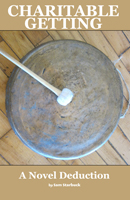
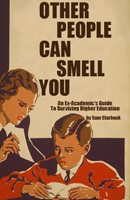
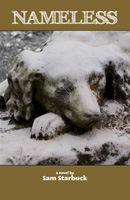
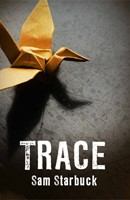
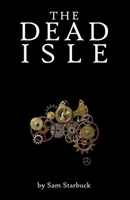
 The City War
The City War


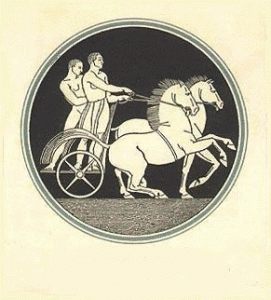

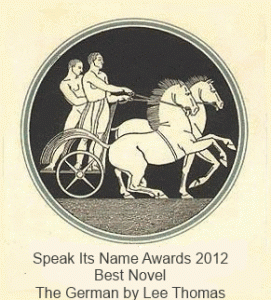


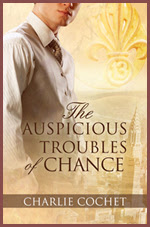

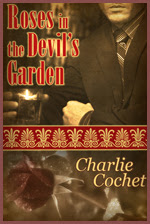
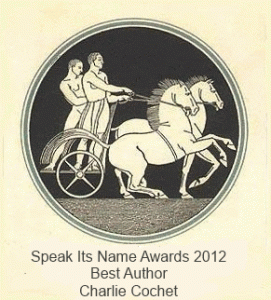





























































 Charlie: As a romance writer, I love all kinds of pairings, but I really do enjoy a good opposites attract story. There’s just so much you can work with. Do their differences make them friends or enemies? Does it bring all sorts of drama, or is it the source of comedic shenanigans? With Remi and Hawk, their opposing personalities spawn both drama and comedy. Their social-standing will always be a touchy subject, and something they each know by now to approach with delicacy—or in Hawk’s case, just say what you’re thinking and deal with the fireworks later. They’re relationship works because they’re both willing to sacrifice, even if they come to that conclusion the hard way. After all, if you really love someone, you sometimes have to swallow your pride and give in, something Hawk is willing to do to keep Remi. He also takes a lot of things in stride, so he tends to find Remi’s little foibles amusing. Also, despite his behavior at times, Hawk is the more mature of the two. He’s very aware of the fact that he’s 13 years older than Remi, and until recently Hawk was a Pinkerton Detective, so he’s been around the block a few times. At heart though, they share important similarities. They’re both men who are constantly judged by others for their appearance and social-standing. Both have experienced terrible heartaches, loss of love, and family, which bonds them emotionally.
Charlie: As a romance writer, I love all kinds of pairings, but I really do enjoy a good opposites attract story. There’s just so much you can work with. Do their differences make them friends or enemies? Does it bring all sorts of drama, or is it the source of comedic shenanigans? With Remi and Hawk, their opposing personalities spawn both drama and comedy. Their social-standing will always be a touchy subject, and something they each know by now to approach with delicacy—or in Hawk’s case, just say what you’re thinking and deal with the fireworks later. They’re relationship works because they’re both willing to sacrifice, even if they come to that conclusion the hard way. After all, if you really love someone, you sometimes have to swallow your pride and give in, something Hawk is willing to do to keep Remi. He also takes a lot of things in stride, so he tends to find Remi’s little foibles amusing. Also, despite his behavior at times, Hawk is the more mature of the two. He’s very aware of the fact that he’s 13 years older than Remi, and until recently Hawk was a Pinkerton Detective, so he’s been around the block a few times. At heart though, they share important similarities. They’re both men who are constantly judged by others for their appearance and social-standing. Both have experienced terrible heartaches, loss of love, and family, which bonds them emotionally.
 Charlie: I love sequels, and I certainly have them in mind for Remi and Chance. They’ve actually been started. I’m just a little slow with my writing. The next book in Remi and Hawk’s adventure will concentrate more on Hawk, seeing as the first book was a little bit more about Remi. We’ll get a look into Hawk’s past, and the reasons behind why he is who he is, also his past will come catching up with him, and he’ll have to face the man who had a huge part in changing his life, something Hawk hasn’t been able to let go of. I think there are plenty of opportunities for Remi and Hawk to continue, especially with Remi’s younger brother coming into the picture. As for Chance, the next book will actually be about Johnnie and Henry. Johnnie is a character I quickly fell in love with, because he’s a lot like Chance as far as attitude, but a lot of the time, Chance is more bark than bite. Johnnie on the other hand will bite. Hard. He’s like a powder keg all the time just waiting to go off, and once he does, it’s hard to get him back under control. He has a lot of issues to work through, but he refuses to let anyone help him, and prefers to pretend what happened to him didn’t happen. The third book will be Bobby and Alexander’s, which we haven’t gotten to see too much of. I think Bobby’s going to surprise us all. You know what they say; it’s always the quiet ones.
Charlie: I love sequels, and I certainly have them in mind for Remi and Chance. They’ve actually been started. I’m just a little slow with my writing. The next book in Remi and Hawk’s adventure will concentrate more on Hawk, seeing as the first book was a little bit more about Remi. We’ll get a look into Hawk’s past, and the reasons behind why he is who he is, also his past will come catching up with him, and he’ll have to face the man who had a huge part in changing his life, something Hawk hasn’t been able to let go of. I think there are plenty of opportunities for Remi and Hawk to continue, especially with Remi’s younger brother coming into the picture. As for Chance, the next book will actually be about Johnnie and Henry. Johnnie is a character I quickly fell in love with, because he’s a lot like Chance as far as attitude, but a lot of the time, Chance is more bark than bite. Johnnie on the other hand will bite. Hard. He’s like a powder keg all the time just waiting to go off, and once he does, it’s hard to get him back under control. He has a lot of issues to work through, but he refuses to let anyone help him, and prefers to pretend what happened to him didn’t happen. The third book will be Bobby and Alexander’s, which we haven’t gotten to see too much of. I think Bobby’s going to surprise us all. You know what they say; it’s always the quiet ones. Elin: Can you tell me a bit about GayRomLit? I know it was in Albequerque and that it was HUGE and sounded rather daunting to this country mouse. What made it so worth attending and should we be saving up for Atlanta next year?
Elin: Can you tell me a bit about GayRomLit? I know it was in Albequerque and that it was HUGE and sounded rather daunting to this country mouse. What made it so worth attending and should we be saving up for Atlanta next year? Perhaps it was time for Edward to get down to the heart of the matter, and the reason why Eros was doing his best to avoid him, even to the point of being brazen with him when every other chorus boy, cupid, and Ancient Greek deity seemed to be in a constant state of frenzy each night in the hopes of roping themselves a wealthy patron. “Have I done something to offend you?” He took hold of Eros’s hand again, refusing to let it go. After the second tug, Eros let out a sigh and left his hand in Edward’s grip. The young man was absolutely enchanting, even when he was irritated.
Perhaps it was time for Edward to get down to the heart of the matter, and the reason why Eros was doing his best to avoid him, even to the point of being brazen with him when every other chorus boy, cupid, and Ancient Greek deity seemed to be in a constant state of frenzy each night in the hopes of roping themselves a wealthy patron. “Have I done something to offend you?” He took hold of Eros’s hand again, refusing to let it go. After the second tug, Eros let out a sigh and left his hand in Edward’s grip. The young man was absolutely enchanting, even when he was irritated.